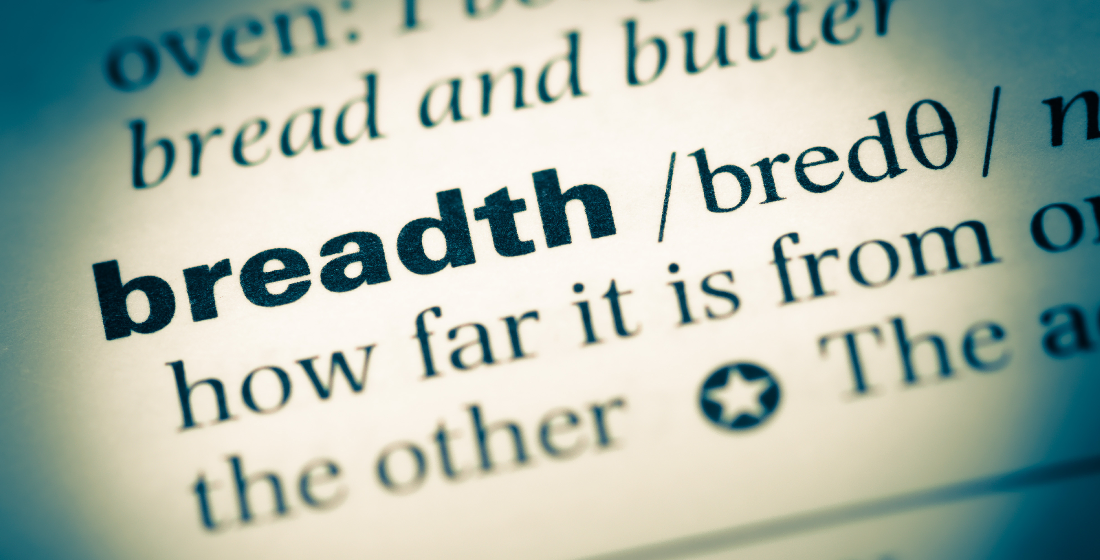Coronavirus and global trade: In viro veritas?
The new coronavirus, Covid-19, is shining a light on just how connected global trade is to the world’s second largest economy. TXF takes a look at how China will officially support its trade and we ask whether global ECAs need to be taking note. ‘Think Global, Act Local’ may be apt for world trade and the response to the disease.

If your doctor puts blue dye into your body, you can see the problems with digestion or circulation. In the same way, you can see potential black swan events show up in the world economy and the capillary nature of global trade. The new coronavirus (Covid-19) illustrates how much more interconnected supply chains have become and how all roads now lead to and from China. This is more evident than recent trade wars and far more so than it was 17 years ago when Sars emerged.
TXF’s coverage illustrates how even long term projects can be hit by an aggregation of short term events, decisions and processes. Commodity markets were immediately affected and supply chains impacted by demand and supply shocks. On 11 February Dun & Bradstreet reported on the business impact of Covid-19 saying that at least five million companies globally have suppliers in the impacted regions in China.
That was interesting, but the real meat came on 19 February when the US Securities and Exchange Commission (SEC) issued a joint public statement with the Chairman of the Public Company Accounting Oversight Board after meeting with the big four accounting firms. Unusually, while they reminded companies about their disclosure requirements, they said companies can reach out to the SEC for guidance, or a determination whether they are eligible for relief from filing deadlines. That is serious when the SEC takes note.
The lack of official statistics from China for the first couple of months of this year makes evaluation of the fragmentary data even more difficult. Those guaranteeing export credits or supporting imports and trade may need to step up further, and at the very least need to replace a watching brief with further action.
China knows that stabilising foreign trade and investment is important. Speaking to communist party members on 23 February, President Xi made specific mention of export support and spelled out how much he intends to support domestic industry: “[We must] make full use of compliant foreign trade policy tools such as export tax rebates and export credit insurance to ensure the smooth operation of the foreign trade industrial chain and supply chain and ensure that major foreign investment projects land,” he said, according to the South China Morning Post’s report of the Xinhua broadcast.
Force majeure rears its head
The spread of the virus shows how geographical boundaries mean little. National boundaries – and different legal systems – are something else. For example, China has allowed claims of force majeure – a recognition in law when a company cannot meet its contractual obligations because of circumstances outside its control – to be made in certain certified instances as early as the beginning of February. Copper, LNG and many commodities bound for China are being affected. Law firm Sullivan noted in a post on force majeure and Covid-19 that there is sometimes a mix up between issues of contract frustration and force majeure in China, and notes unconfirmed reports that payments of some trade instruments such as letters of credit may have been challenged by certain Chinese banks.
“In relation to LCs, the force majeure clause in UCP 600 is only applicable where the relevant banks’ own commercial operations are being affected by the force majeure event, and not where problems are experienced by the obligors themselves within the supply chain,” the Sullivan report notes, continuing that the ICC in China asked member banks on 5 February to do their best, “to ensure the continued timely processing of international trade finance business despite Covid-19. Correspondent banks may only invoke force majeure as a cause to refuse to pay if they can justify how their own operations are being affected by Covid-19, for example perhaps the delivery issues to Wuhan or Hubei Province, but these should affect only a small minority of cases.”
Prior to President Xi’s statement the Ministry of Commerce called for more support from Sinosure for SMEs to pay out on short term insurance coverage of exporters, and particularly to increase risk tolerance and lower fees and premiums on insurance for smaller exporters. With the President’s explicit mention of support, no doubt a spotlight will be shone on it.
On 13 February, Daniel Zhang, CEO of Alibaba, China’s biggest listed company, said that Covid-19 was potentially a black swan event (Nassim Taleb’s phrase describing catastrophic events so unlikely they cannot be foreseen). However it is designated, the impact is certainly sudden and unexpected, and global stock markets are being tested, not least by Covid-19 spreading beyond China, in particular to South Korea and Italy (and to other countries whose health systems are less able to stop the virus).
ECA response?
How should export credit agencies respond? “It’s very difficult to do something specific around Covid-19 outside of highlighting the risks from a country risk point of view,” one European ECA spokesperson told TXF off the record. “Unless risk appetites change for exports to China itself, we won’t see the knock on effects in our export business immediately.” Covering imports from China and re-exports is another matter.
Most export finance business is slow and longer term. Finland’s ECA, Finnvera is heavily exposed to cruise ships. The CEO, Pauli Heikkila, plays down the longer term impacts on the sector of the Covid-19 outbreak. “It is definitely having an impact at the moment because nobody yet knows the extent and there are still cruise ships trapped in quarantine or unable to dock, and trips are being cancelled,” he tells TXF. “However, while it will have an impact, it’s important to note that there have been many events that have happened in recent years that have impacted the cruise industry, from bird flu, swine flu, Sars, through to the grounding off Italy of the Costa Concordia, and every time some journalists will say that it’s the end of the industry as we know it. It is impossible to know, and we’ll have a better view by the summer, but I still think the sector will continue to have the potential to grow, particularly in Asia.”
For most companies, however, and for their banks, the questions are the small links in some very long supply chains. And the strongest chain is no stronger than the weakest link. The phrase, ‘Think Global, Act Local’, is often invoked for discussions of the environment, but it should be too for the current crisis and our response.
Now time to get up to speed on the markets.
Here's our exclusive TXF in depth articles
Keynote: Shipping keeps Euler Hermes CEO in buoyant mood
It may have been a so-so year for many ECAs, but not Euler Hermes. CEO Edna Schoene was in a buoyant mood when she spoke to TXF. Financing ships has boosted business, claims have been benign and short term business has been stable, but the need to change the OECD Consensus radically is still top of mind.
Commodity finance: Traders stir up the funding mix
The commodity trade finance funding mix is evolving. Growing regulation, the rise of alternative funds and all things ESG have contributed to the decline in deal volume in 2019. But are traders being transparent enough about their deals? And will bank-fund hybrid loans form a happy marriage?
Sullivan trade finance seminar - challenges to trade and commodity finance 2020
Sam Fowler-Holmes, senior associate at Sullivan presents the challenges across the trade and commodity finance space, with potential headwinds in 2020 including sanctions, new regulations, Libor/Sofor, fintechs and of course - Brexit.
Exclusive TXF Tracker and Originals content
Malawi launches RFQs for hydro project
Malawi Public Private Partnership Commission (PPPC) has launched a request for pre-qualification for the 350MW Mpatamanga hydropower project in Malawi. The deadline for responses is 16 March 2020.
Banks mandated for ONGC Videsh’s $1bn loan
Indian oil and gas company ONGC Videsh mandated banks for the syndication of its five-year $1 billion refinancing this month.
Potential sale of Gebze-Izmir concession stake
JP Morgan has been mandated by the Otoyol AS consortium – comprising Nurol Insaat, Ozaltin, Makyol and Astaldi – to advise on the potential sale of a stake in the 22-year Gebze-Orhangazi-Izmir toll road concession in Turkey, which has been fully operational since last year.
Oil India sounding out $225m loan
State-owned Oil India has returned to the loan market for the first time in four years to sound out bank appetite for a $225 million term loan.
Changes at the helm at Citi: Ahearn retires, Pakcan steps up
Ebru Pakcan has been promoted to global head of trade for Citi’s Trade and Treasury Solutions (TTS), reporting to Naveed Sultan, global head of treasury & trade solutions group, Sultan says in an internal announcement received by TXF from a Citi spokesperson.
Mozambique LNG pushing toward financial close
Arrangers on the Mozambique LNG project are pushing to reach financial close before April 2020. If negotiations go past this point the backstop guarantee has to be approved again by the Mozambique parliament.
Valorem closes on debt for two French PV projects
Valorem has closed on €32 million of financing for its Mezos and Pinvert PV projects in France.
Mongolia sounds out EPCs for two solar PV projects
Mongolia’s Ministry of Energy has launched the international competitive bidding process to EPCs for two solar PV projects under its $66.2 million renewable energy programme.
S&P releases European offshore wind report
S&P Global Ratings has released a report suggesting that although European offshore wind will continue to ‘accelerate’ as an industry, there are several factors that could result in lower returns, negatively affecting credit quality.
RBC to launch refi of $767m facility next month
RBC is due to launch the refinancing of a $767 million seven-year loan to back London-based North Sea Midstream Partners.
Details emerge on Ghoubet wind farm deal
Sponsors of the 60MW Ghoubet wind farm in Djibouti – AFC (51%), Climate Fund Managers (CFM) (19.5%), FMO (19.5%) and Great Horn Investment Holdings (GHIH) (10%) – have funded the scheme on balance sheet, with project financing expected to be raised within 12 months after completion (operation is scheduled for 2022).





